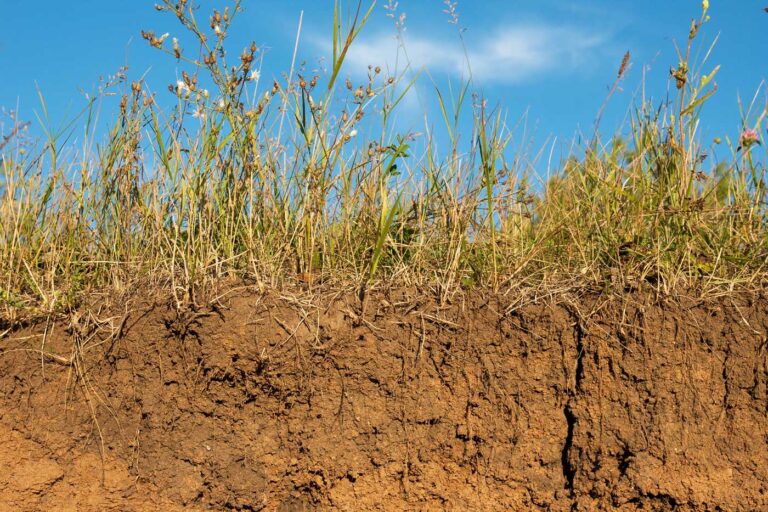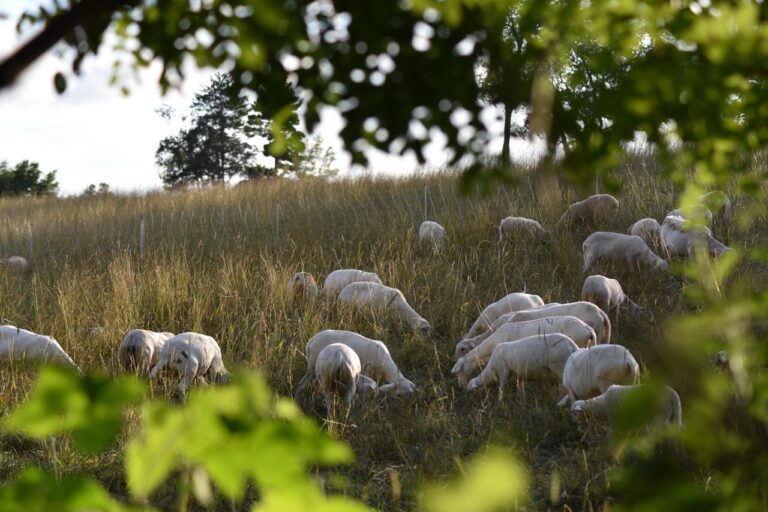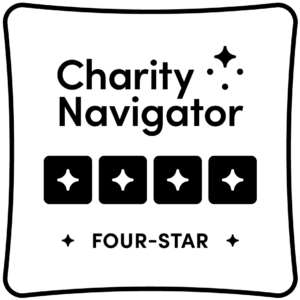What could possibly be achieved, if a small country committed to working from grassroots, through market incentives, through policy – holistically?
What would emerge if all the key leaders and communities involved would commit to fully understanding and managing the complexity of the land and natural resources that sustain us, the market and financial incentives that drive us, and the institutional policies that bind us, and align around a joint vision of a more vibrant, healthy, equitable, and beautiful country; align around a country Holistic Context? Could a country become truly regenerative? We believe it is possible.
SI has been working on the three-leg strategy since its inception.
1. Building Partnership through the Hub Model
Hubs and their associated educators are our partners in arms working in their regions to provide training and support to land stewards to manage land and animals in ways that regenerate the soil and biological diversity of their landscapes and increasing the capture of sunlight energy that is transformed to nourish the whole web of life.
With a more vibrant landscape and spongy, living soil rainfall is absorbed and supports more life, ultimately recharging water tables, returning clean water to creeks and rivers that reach the oceans, pure and abundant. And as they teem with life, these landscapes become carbon sinks, the big topic these days as an angle in the climate change conversation. We refer to this state of health as effective ecosystem processes (energy flow, mineral cycle, water cycle, and community dynamics – 4 windows into the health of the ecosystem).
The return on investment of managing holistically has been proven for decades to be mind-blowing in multiple currencies of value: forage production, wildlife habitat, plant and animal species diversity, soil health, revenue, profit, peace of mind, resilience, contribution to the greater crises we face, and so on.
2. Leveraging Market Forces to Accelerate Progress
Then there is the second leg, the right market forces, which can act as an accelerator or de-risker of taking the first step, of investing time, energy, and money in learning and changing (improving) how we as farmers and ranchers do things, and also measuring the outcomes so we actually track progress.
Sometimes outcomes on the land are subtle and hard to see unless we focus our attention on indicators of ecosystem health and gather the data. Our holistic community conducts such monitoring for two reasons, to inform tweaks in their management practices and to differentiate their products in the marketplace. That is the role of Ecological Outcome Verification (EOV) and our global Land to Market program.
3. Driving Adoption of Holistic Management at the Policy Level
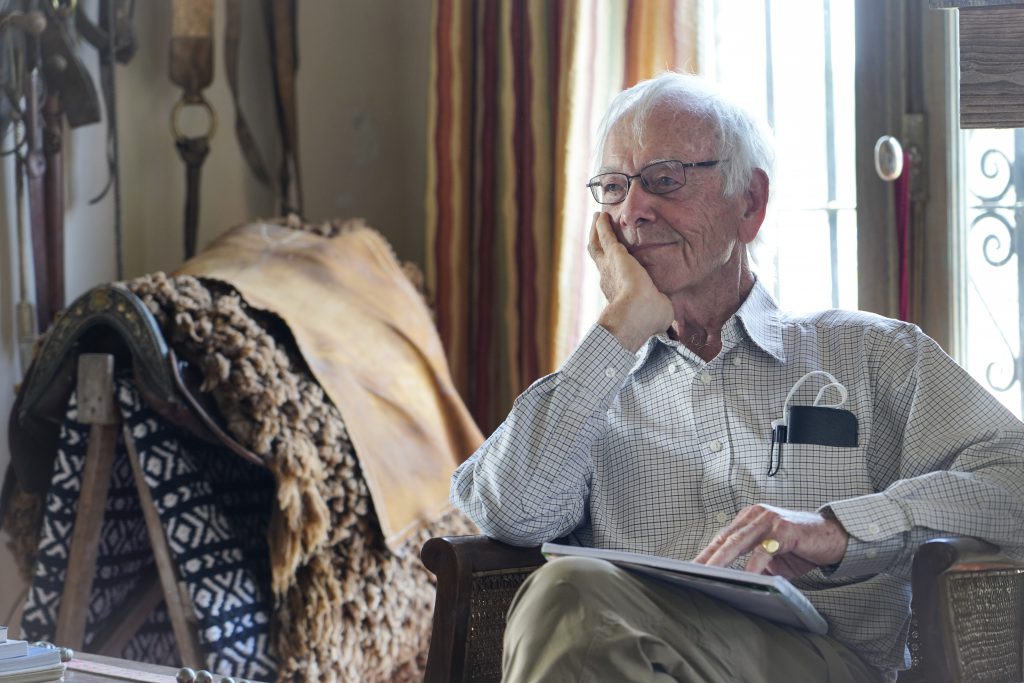
Then there is the third leg, one that for a long time has waited patiently for attention. I think the main reasons for this were a) a lack of a sense of urgency until now; b) a lack of recognition of the role of agriculture in combatting climate change; c) a lack of trained Savory professionals in Holistic Policy Development and d) the lack of policymakers keen and curious to lead a new way of developing policies. All that is changing.
The time has come to bring the third leg of our strategy full force, and we have a few good partners in arms to start piloting what that may look like.
Allan Savory, Jody Butterfield, and I had the rare pleasure of spending seven days in isolation, at a small and remote farm in Uruguay, as we quarantined in preparation for high-level meetings with ministers of agriculture and the environment, congress representatives, and heads of industry.
These days were a special gift to me, as we sat and talked for hours, discussing the past, present, and future of the regenerative movement, the opportunities and shortcomings of the current global dialogues, the health, needs, and growth of the Savory network, our strategy and programs, our hopes and fears, and more. We watched a handful of the latest documentaries making their rounds in the network, both concerning and inspiring at the same time, sparking more dialogue.
In preparation for our meetings, policy took center stage in our daily conversations.
“World leaders are aware of the urgent calls from the youth of today to take action as we experience increased frequency of droughts, floods, accelerating desertification, mega-fires, mass emigration across borders, social breakdown, global finance driving environmental destruction, and the rising climate emergency,” said Allan as we gathered around the fireplace.
“The present pandemic has made us all aware that our health and well-being, nature’s health, and the health of our economies are indivisible. Any nation today managing for the better lives of its citizens, a healthier planet, and a global economy can no longer be an island unto itself. While society continues to blame fossil fuels and livestock largely, commonsense informs us these are resources we manage, and thus management (reductionist vs holistic) is the cause of climate change that the world’s political leaders have to address.” Allan has been passionate about addressing these global issues at the policy level for a long time. The grassroots have been activated, awareness is growing rapidly, and the conditions seem ripe now to go at it.
The present pandemic has made us all aware that our health and well-being, nature’s health, and the health of our economies are indivisible
Allan Savory Tweet
Through our government developing policies resulting in laws, regulations, taxation, subsidies our leaders shape the flow of resources, the behaviors, the practices, the incentives that citizens will follow and be impacted by.
Allan Savory often emphasizes that “Agriculture – the production of food and fiber from the world’s land and waters – is vital. Without agriculture, we cannot have a choir, art, university, government, army, town, city, or any business. Nothing can be more important to any nation than its agricultural and energy policies as all nations face the dangers of climate change”.
But nations develop policies with expert advice and interest group pressures rather than in the interests of all citizens. A Holistic Context at the national level could be the way to a brighter future. Are we ready to try this approach in a few small countries, not yet fully lost to the perils of industrial agriculture?
This challenge was put forth to the ministers of Uruguay after a moving presentation by Allan and a few hours of lively dialogue, curious exchange, some skeptical views, and a lovely meal hosted by our Uruguay Hub, Pampa Oriental, led by Felipe Urioste.
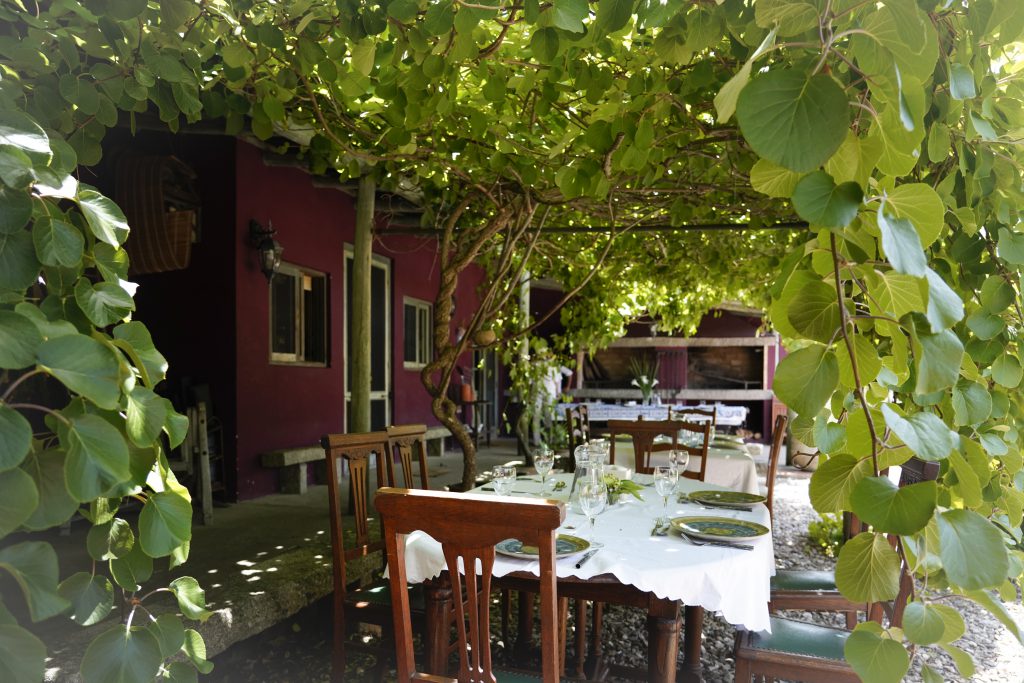
We all convened at the Hub demo site, beautiful Valle Sol, managed holistically by Magdalena Urioste, co-founder of the burgeoning women-network Pampeanas Regenerativas Orientales (PRO). Co-founders of PRO Althaea Ganly and Patricia Cook were also in attendance, among a small, tight-knit group of friends and partners, given the strict COVID protocol. Could Uruguay lead the development of a holistic policy for its agriculture? I think we may have the chance. And Allan will be happy to partake.
A Commitment to Explore Holistic Policy to Make Uruguay’s Agriculture More Productive and Resilient
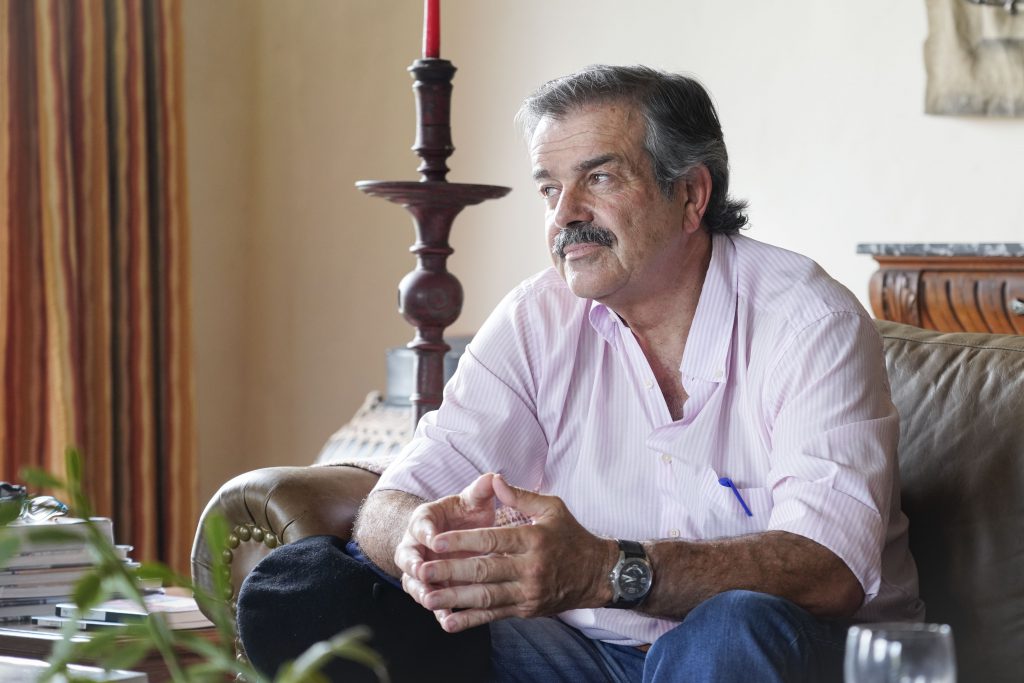
As a result of the meeting, an Agreement of Cooperation was signed between the Ministry of Livestock, Agriculture, and Fisheries and the Savory Institute. This agreement represents an umbrella commitment to explore and pilot a path, with action, where the grassroots movement supported by Pampa Oriental, the Land to Market program, and the development of holistic policy can align and synergize to make Uruguay’s agriculture more productive and resilient, and a net carbon sink. Will Uruguay be the first country to become a true regenerative world leader?
Political leaders mostly lead with plausible actions – those accepted, proved, or credible. True leaders and founders of movements and transformations envision something possible, that does not yet exist, and help us see their potential before it becomes plausible. With a youth-led Hub supported by countless experienced mentors and a massive community of committed boots on the ground, with 100+ women involved, with the promising political leadership of the new president and minister of agriculture, and with a regenerative livestock culture eager to lead the global movement, I feel a great sense of hope and potential for Uruguay. Let’s witness the magic unfold.
NOTE: To increase the cadre of Holistic Policy facilitators in our network, Allan Savory will be leading a series of training sessions in 2021, with a select group of Accredited Professionals, targeted at creating a Global Policy Task Force that will be prepared to support keen government leaders in exploring the development of Holistic policies to complement and synergize the efforts of our Hubs. Details on the sessions will be announced in early 2021.
What could possibly be achieved, if a small country committed to working from grassroots, through market incentives, through policy – holistically?
What would emerge if all the key leaders and communities involved would commit to fully understanding and managing the complexity of the land and natural resources that sustain us, the market and financial incentives that drive us, and the institutional policies that bind us, and align around a joint vision of a more vibrant, healthy, equitable, and beautiful country; align around a country Holistic Context? Could a country become truly regenerative? We believe it is possible.
SI has been working on the three-leg strategy since its inception.
1. Building Partnership through the Hub Model
Hubs and their associated educators are our partners in arms working in their regions to provide training and support to land stewards to manage land and animals in ways that regenerate the soil and biological diversity of their landscapes and increasing the capture of sunlight energy that is transformed to nourish the whole web of life.
With a more vibrant landscape and spongy, living soil rainfall is absorbed and supports more life, ultimately recharging water tables, returning clean water to creeks and rivers that reach the oceans, pure and abundant. And as they teem with life, these landscapes become carbon sinks, the big topic these days as an angle in the climate change conversation. We refer to this state of health as effective ecosystem processes (energy flow, mineral cycle, water cycle, and community dynamics – 4 windows into the health of the ecosystem).
The return on investment of managing holistically has been proven for decades to be mind-blowing in multiple currencies of value: forage production, wildlife habitat, plant and animal species diversity, soil health, revenue, profit, peace of mind, resilience, contribution to the greater crises we face, and so on.
2. Leveraging Market Forces to Accelerate Progress
Then there is the second leg, the right market forces, which can act as an accelerator or de-risker of taking the first step, of investing time, energy, and money in learning and changing (improving) how we as farmers and ranchers do things, and also measuring the outcomes so we actually track progress.
Sometimes outcomes on the land are subtle and hard to see unless we focus our attention on indicators of ecosystem health and gather the data. Our holistic community conducts such monitoring for two reasons, to inform tweaks in their management practices and to differentiate their products in the marketplace. That is the role of Ecological Outcome Verification (EOV) and our global Land to Market program.
3. Driving Adoption of Holistic Management at the Policy Level

Then there is the third leg, one that for a long time has waited patiently for attention. I think the main reasons for this were a) a lack of a sense of urgency until now; b) a lack of recognition of the role of agriculture in combatting climate change; c) a lack of trained Savory professionals in Holistic Policy Development and d) the lack of policymakers keen and curious to lead a new way of developing policies. All that is changing.
The time has come to bring the third leg of our strategy full force, and we have a few good partners in arms to start piloting what that may look like.
Allan Savory, Jody Butterfield, and I had the rare pleasure of spending seven days in isolation, at a small and remote farm in Uruguay, as we quarantined in preparation for high-level meetings with ministers of agriculture and the environment, congress representatives, and heads of industry.
These days were a special gift to me, as we sat and talked for hours, discussing the past, present, and future of the regenerative movement, the opportunities and shortcomings of the current global dialogues, the health, needs, and growth of the Savory network, our strategy and programs, our hopes and fears, and more. We watched a handful of the latest documentaries making their rounds in the network, both concerning and inspiring at the same time, sparking more dialogue.
In preparation for our meetings, policy took center stage in our daily conversations.
“World leaders are aware of the urgent calls from the youth of today to take action as we experience increased frequency of droughts, floods, accelerating desertification, mega-fires, mass emigration across borders, social breakdown, global finance driving environmental destruction, and the rising climate emergency,” said Allan as we gathered around the fireplace.
“The present pandemic has made us all aware that our health and well-being, nature’s health, and the health of our economies are indivisible. Any nation today managing for the better lives of its citizens, a healthier planet, and a global economy can no longer be an island unto itself. While society continues to blame fossil fuels and livestock largely, commonsense informs us these are resources we manage, and thus management (reductionist vs holistic) is the cause of climate change that the world’s political leaders have to address.” Allan has been passionate about addressing these global issues at the policy level for a long time. The grassroots have been activated, awareness is growing rapidly, and the conditions seem ripe now to go at it.
The present pandemic has made us all aware that our health and well-being, nature’s health, and the health of our economies are indivisible
Allan Savory
Through our government developing policies resulting in laws, regulations, taxation, subsidies our leaders shape the flow of resources, the behaviors, the practices, the incentives that citizens will follow and be impacted by.
Allan Savory often emphasizes that “Agriculture – the production of food and fiber from the world’s land and waters – is vital. Without agriculture, we cannot have a choir, art, university, government, army, town, city, or any business. Nothing can be more important to any nation than its agricultural and energy policies as all nations face the dangers of climate change”.
But nations develop policies with expert advice and interest group pressures rather than in the interests of all citizens. A Holistic Context at the national level could be the way to a brighter future. Are we ready to try this approach in a few small countries, not yet fully lost to the perils of industrial agriculture?
This challenge was put forth to the ministers of Uruguay after a moving presentation by Allan and a few hours of lively dialogue, curious exchange, some skeptical views, and a lovely meal hosted by our Uruguay Hub, Pampa Oriental, led by Felipe Urioste.

We all convened at the Hub demo site, beautiful Valle Sol, managed holistically by Magdalena Urioste, co-founder of the burgeoning women-network Pampeanas Regenerativas Orientales (PRO). Co-founders of PRO Althaea Ganly and Patricia Cook were also in attendance, among a small, tight-knit group of friends and partners, given the strict COVID protocol. Could Uruguay lead the development of a holistic policy for its agriculture? I think we may have the chance. And Allan will be happy to partake.
A Commitment to Explore Holistic Policy to Make Uruguay’s Agriculture More Productive and Resilient

As a result of the meeting, an Agreement of Cooperation was signed between the Ministry of Livestock, Agriculture, and Fisheries and the Savory Institute. This agreement represents an umbrella commitment to explore and pilot a path, with action, where the grassroots movement supported by Pampa Oriental, the Land to Market program, and the development of holistic policy can align and synergize to make Uruguay’s agriculture more productive and resilient, and a net carbon sink. Will Uruguay be the first country to become a true regenerative world leader?
Political leaders mostly lead with plausible actions – those accepted, proved, or credible. True leaders and founders of movements and transformations envision something possible, that does not yet exist, and help us see their potential before it becomes plausible. With a youth-led Hub supported by countless experienced mentors and a massive community of committed boots on the ground, with 100+ women involved, with the promising political leadership of the new president and minister of agriculture, and with a regenerative livestock culture eager to lead the global movement, I feel a great sense of hope and potential for Uruguay. Let’s witness the magic unfold.
NOTE: To increase the cadre of Holistic Policy facilitators in our network, Allan Savory will be leading a series of training sessions in 2021, with a select group of Accredited Professionals, targeted at creating a Global Policy Task Force that will be prepared to support keen government leaders in exploring the development of Holistic policies to complement and synergize the efforts of our Hubs. Details on the sessions will be announced in early 2021.

